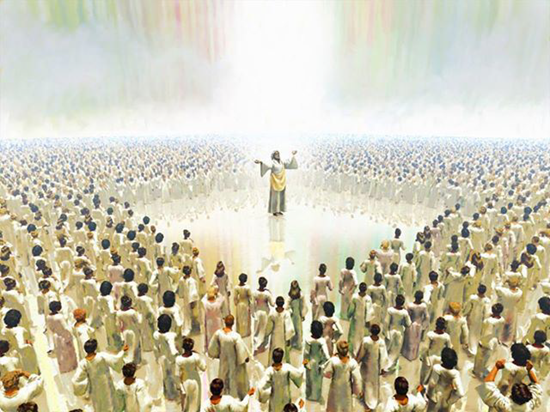The theme of the “gathering” is one of the important teachings of the Israelites of old as seen in the Scriptures. God made a covenant with them to bless them and make them prosper if only they obey his commands; unfortunately, they turned away from God and followed their own designs, and this led them into a lot of problems, brought disunity, and banishment from their lands etc. As such, God sent his prophets in order to remind them of his rich promises of unity and hope for a better future. This is what we see in today’s First Reading (cf. Ezekiel 37:21-28): “I am going to take the sons of Israel from the nations where they have gone. I shall gather them together from everywhere and bring them home to their own soil. I shall make them into one nation in my own land and on the mountains of Israel, and one king is to be king of them all; they will no longer form two nations, nor be two separate kingdoms…” Likewise, in Isaiah, we read: “On that day the Lord will extend his hand yet a second time to recover the remnant that remains of his people, from Assyria, from Egypt, from Pathros, from Cush, from Elam, from Shinar, from Hamath, and from the coastlands of the sea. He will raise a signal for the nations and will assemble the banished of Israel, and gather the dispersed of Judah from the four corners of the earth” (Isaiah 11:11-12). The same sentiment is prophesied in today’s Psalm: (cf. Jer. 31:10-13): “The Lord will guard us as a shepherd guards his flock.” Literarily, this prophecy was fulfilled in the lives of the Israelites but reaches its fuller fulfilment with the death of Christ.
As seen in today’s Gospel (cf. John 11:45-56), we come to a realization that Jesus was to die to gather together the scattered children of God. The Jews were determined to have Jesus killed. They called a meeting to deliberate about arresting Jesus and having him killed. It was there that Caiaphas made the prophecy that Jesus was to die for the nation – and not for the nation only but to gather together in unity the scattered children of God. By this, we have come to the understanding that the “gathering of the nations” is not only referred to the Israelites but also the aim of God’s plan of redemption, to bring all peoples to worship him together at the heavenly Jerusalem; to join in the worship of God as at a pilgrim feast in the kingdom of God. Here we see the in-gathering of the Gentiles pictured. The prophets (Ezekiel, Isaiah) and Jesus portray the end, the consummation of God’s plan of salvation, in terms of a gathering-in of Gentiles to celebrate and worship God together.
Dear friends in Christ, at every Eucharistic banquet, this promise of God is reflected – we gather together from all corners of the earth to celebrate the Lord’s banquet, a foretaste of the heavenly banquet. Therefore, for the many times have turned away from God and faced the consequences of division, hardships, pain, sickness etc., like the Israelites of old; today, the faithful Lord upholds his promise to gather and restore us at the Lord’s table. As we approach the Holy Week, the climax of our salvation history, we are reassured once again of God’s love and promises in our lives for a better future in paradise realized through the death of His beloved Son, our Lord Jesus Christ. In a very difficult moment for the faithful at this critical time when they cannot participate in person due to the quarantine against the spread of COVID-19, we pray the Holy Spirit grants them the grace of proper disposition, of contrition and repentance in order to benefit richly from the graces that come with Easter.
May the Lord bless his words in our hearts. Amen.
Shalom!
Paroquia Nossa Senhora de Fatima, Vila Sabrina, São Paulo, Brazil
nozickcjoe@gmail.com / fadacjay@gmail.com



